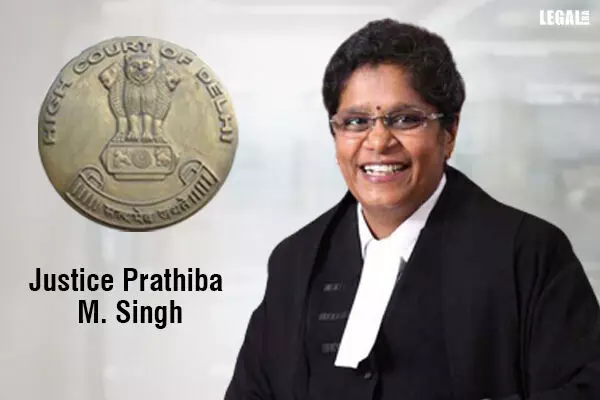- Home
- News
- Articles+
- Aerospace
- Artificial Intelligence
- Agriculture
- Alternate Dispute Resolution
- Arbitration & Mediation
- Banking and Finance
- Bankruptcy
- Book Review
- Bribery & Corruption
- Commercial Litigation
- Competition Law
- Conference Reports
- Consumer Products
- Contract
- Corporate Governance
- Corporate Law
- Covid-19
- Cryptocurrency
- Cybersecurity
- Data Protection
- Defence
- Digital Economy
- E-commerce
- Employment Law
- Energy and Natural Resources
- Entertainment and Sports Law
- Environmental Law
- Environmental, Social, and Governance
- Foreign Direct Investment
- Food and Beverage
- Gaming
- Health Care
- IBC Diaries
- In Focus
- Inclusion & Diversity
- Insurance Law
- Intellectual Property
- International Law
- IP & Tech Era
- Know the Law
- Labour Laws
- Law & Policy and Regulation
- Litigation
- Litigation Funding
- Manufacturing
- Mergers & Acquisitions
- NFTs
- Privacy
- Private Equity
- Project Finance
- Real Estate
- Risk and Compliance
- Student Corner
- Take On Board
- Tax
- Technology Media and Telecom
- Tributes
- Viewpoint
- Zoom In
- Law Firms
- In-House
- Rankings
- E-Magazine
- Legal Era TV
- Events
- Middle East
- Africa
- News
- Articles
- Aerospace
- Artificial Intelligence
- Agriculture
- Alternate Dispute Resolution
- Arbitration & Mediation
- Banking and Finance
- Bankruptcy
- Book Review
- Bribery & Corruption
- Commercial Litigation
- Competition Law
- Conference Reports
- Consumer Products
- Contract
- Corporate Governance
- Corporate Law
- Covid-19
- Cryptocurrency
- Cybersecurity
- Data Protection
- Defence
- Digital Economy
- E-commerce
- Employment Law
- Energy and Natural Resources
- Entertainment and Sports Law
- Environmental Law
- Environmental, Social, and Governance
- Foreign Direct Investment
- Food and Beverage
- Gaming
- Health Care
- IBC Diaries
- In Focus
- Inclusion & Diversity
- Insurance Law
- Intellectual Property
- International Law
- IP & Tech Era
- Know the Law
- Labour Laws
- Law & Policy and Regulation
- Litigation
- Litigation Funding
- Manufacturing
- Mergers & Acquisitions
- NFTs
- Privacy
- Private Equity
- Project Finance
- Real Estate
- Risk and Compliance
- Student Corner
- Take On Board
- Tax
- Technology Media and Telecom
- Tributes
- Viewpoint
- Zoom In
- Law Firms
- In-House
- Rankings
- E-Magazine
- Legal Era TV
- Events
- Middle East
- Africa
Delhi High Court: Advertising Part Of Commercial Speech; Exaggerations, Puffery, And Hyperbole Can't Be Curtailed Totally

Delhi High Court: Advertising Part Of Commercial Speech; Exaggerations, Puffery, And Hyperbole Can't Be Curtailed Totally
The matter is scheduled for a hearing on 17 May
The Delhi High Court has held that advertising is a part of commercial speech recognized under Article 19(1)(a) of the Constitution of India. Any restraint on such a right could be placed only with some authority of law.
The bench of Justice Prathiba M Singh while clarifying that exaggerations, puffery, and hyperbole, considered part of advertising, could not be completely curtailed, further stated, “In the field of advertising some ‘play in the joints’ is always recognized and permitted.”
The observations were made while staying a 23 December 2023 order passed by the Advertising Standards Council of India (ASCI), recommending Kent RO Systems to modify its advertisement claiming ‘Kent deta hai sabse shudh paani’.
The ASCI had observed that the claim was not substantiated with verifiable comparative data. It was misleading by exaggerating and was likely to lead to widespread disappointment in the minds of the consumers.
Thereafter, Kent filed a suit challenging the ASCI's order, passed on a complaint by TTK Prestige Limited. The latter had alleged that the advertisement did not comply with the advertising code.
Thus, while staying the order, the court noted that an additional issue would arise in the matter of whether ASCI's jurisdiction was exercised in a case involving competitive advertising.
The bench stated, “The complaint is not by a consumer but by a competitor - TTK Prestige. No consumer has complained that he/she is misled due to the exaggeration that the plaintiff gives the purest water. Such exaggerations, puffery, hyperbole are part of the advertising, which cannot be completely curtailed, except in accordance with the law.”
Justice Singh pointed out that the advertisement has been broadcast since 2007. Thus, it could not permit the impugned order to influence Kent, curtailing its advertising right.
The bench ruled, “Prima facie, the court finds in favor of the plaintiff that while the issues raised deserve to be considered, interim protection deserves to be granted in favor of the plaintiff staying the order passed by the ASCI.”



